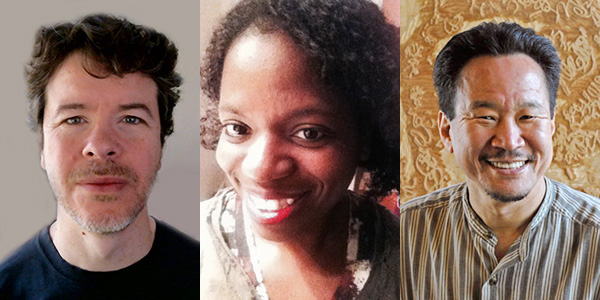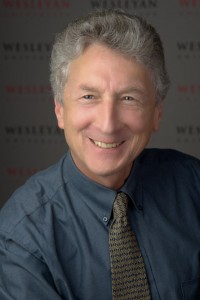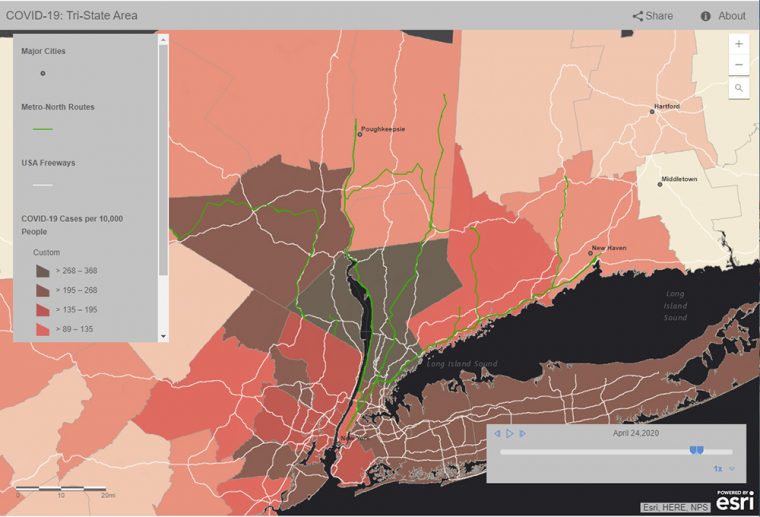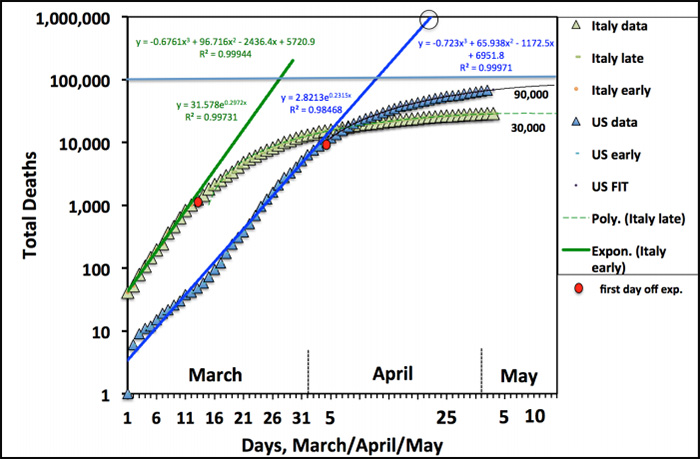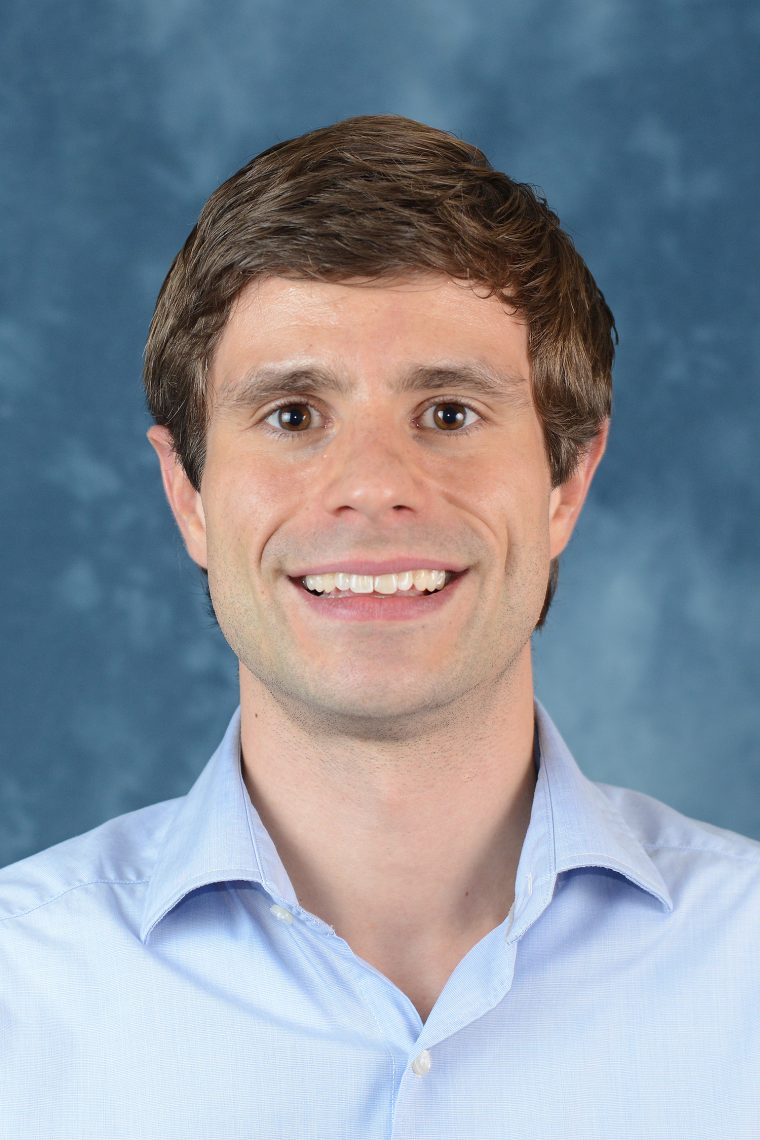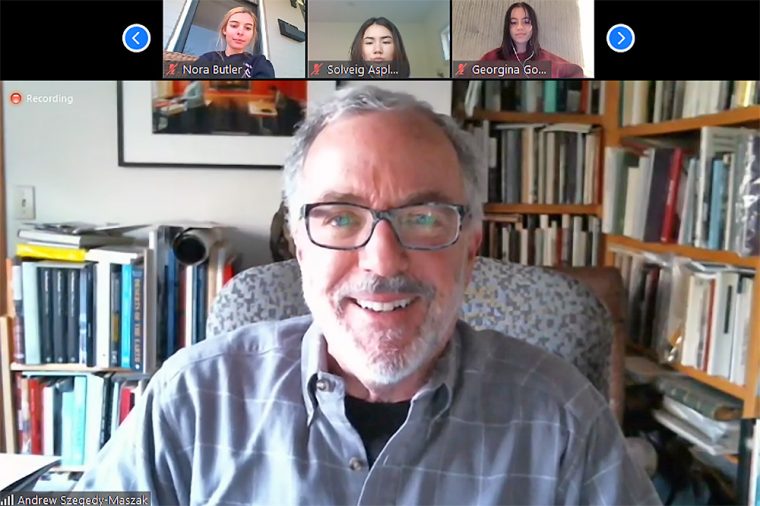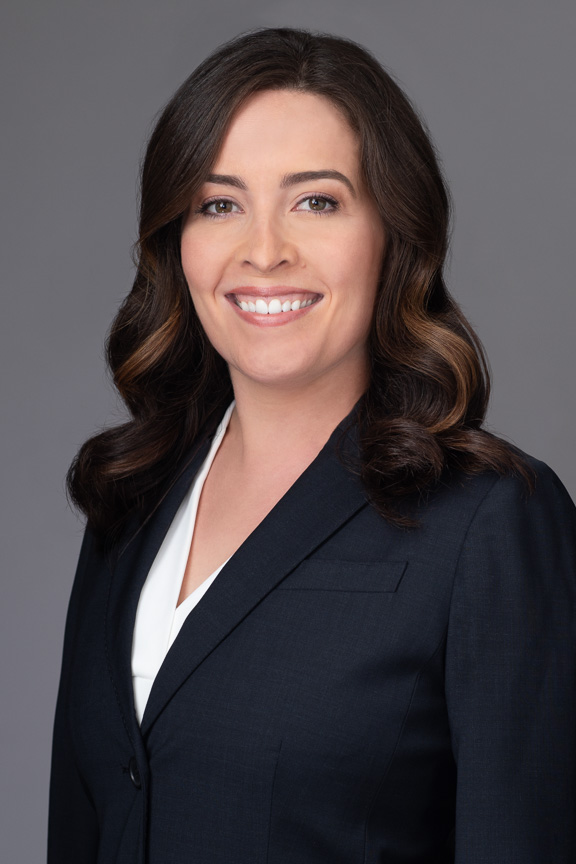Wesleyan's Board of Trustees recently announced the promotions of nine faculty members, effective July 1, 2020. Five faculty were conferred tenure with promotion. They join six other faculty members who were awarded tenure earlier this spring. Joslyn Barnhart Trager, associate professor of government Anthony Keats, associate professor of economics Andrew Quintman, associate professor of religion Michael Slowik '03, associate professor of film studies Takeshi Watanabe, associate professor of East Asian studies In addition, four faculty members are being promoted. They join one other faculty member who was promoted earlier this spring. Erika Franklin Fowler, professor of government Barbara Juhasz, professor…
There was something about Kate Birney's research that smelled a little off. As far back as the 4th century B.C., Greece was a global leader in producing a plethora of posh perfumes sold in handcrafted ceramic bottles marked with three chalky-white stripes. "Much like today, some of these ceramic perfume bottles were 'branded'—made in distinctive shapes, and painted or decorated in distinctive ways—probably to tell the consumer what scent they contained, or which perfume house/region they were imported from," said Birney, associate professor of classical studies and chair of Wesleyan's Archaeology Program. So when similar bottles, or unguentaria, were excavated…
This month, four Wesleyan faculty received the honorary degree of Master of Arts ad eundem gradum. This degree has been awarded by Wesleyan since 1894 to those members of the faculty who are not graduates of Wesleyan at the bachelor’s level and who have attained the rank of full professor. The award makes each full professor an alumnus/a of the University. Recipients include Hilary Barth, professor of psychology; Robert Conn, professor of Spanish; Sanford Shieh, professor of philosophy, and Nicole Stanton, professor of dance.
Eight Wesleyan faculty members are retiring at the end of the 2019–20 academic year. They include: RICHARD ADELSTEIN Woodhouse/Sysco Professor of Economics (2010–2020) Professor of Economics (1990–2020) Associate Professor of Economics (1981–1990) Assistant Professor of Economics (1976–1981) Visiting Assistant Professor of Economics (1975–1976) IRINA ALESHKOVSKY Adjunct Professor of Russian Language & Literature (2003–2020) Adjunct Associate Professor of Russian Language & Literature (1995–2003) Adjunct Assistant Professor of Russian Language & Literature (1992–1995) Adjunct Lecturer of Russian Language and Literature (1987–1992) Teaching Associate in Russian Language and Literature (1983–1987) (more…)
L. Kent Bendall, professor of philosophy, emeritus, died on May 15 at the age of 88. Bendall received his BA from Rice University and his MA and PhD from Yale University. He arrived at Wesleyan in 1963, where he taught philosophy until his retirement in 1992. During his 29 years at Wesleyan, Bendall was an integral part of the University and the Philosophy Department. He served many terms as chair of the Education Policy Committee and of the Philosophy Department; he also served as chair of the University Senate and was a member of the planning committee for the new…
Every spring, Wesleyan recognizes outstanding faculty with three Binswanger Prizes for Excellence in Teaching. This year's recipients include Gloster Aaron, associate professor of biology, Robyn Autry, associate professor and chair of sociology, and Keiji Shinohara, artist-in-residence. Made possible by gifts from the family of the late Frank G. Binswanger Sr., Hon. ’85, these prizes underscore Wesleyan’s commitment to its scholar-teachers, who are responsible for the University’s distinctive approach to liberal arts education. (more…)
At the University’s 188th Commencement on May 24, Wesleyan will present the Baldwin Medal, the highest award of the Alumni Association, to Rob Rosenthal, John Andrus Professor of Sociology, Emeritus. The Baldwin Medal pays tribute to the late Judge Raymond E. Baldwin ’16, the only man to have held the offices of Connecticut governor, U.S. senator, and chief justice of the Connecticut Supreme Court. First awarded Sept. 20, 1981, during the opening convocation of Wesleyan's Sesquicentennial, the Baldwin Medal is the highest honor Wesleyan's alumni body presents for extraordinary service to Wesleyan or for careers and other activities that have…
In late March, as New York City's coronavirus infection rate skyrocketed to five times higher than the rest of the country, members of Wesleyan's Traveler's Lab explored a movement-focused approach to the rapid spread of the disease. Rather than focusing on political borders, lab members depicted major freeways, highways, and commuter rail lines out of New York City, and examined counties within a 2.5-hour drive from the City. "While New York City may be the center, it is the travel region immediately surrounding the city that provides the true context of how COVID-19 has spread and is spreading to, and…
Last March, Johan (Joop) C. Varekamp, Harold T. Stearns Professor of Earth Science, intended to teach an ore deposit and formation class in Italy; however, the COVID-19 pandemic caused him to stay near campus. Nevertheless, Varekamp kept a keen watch on Italy. With a fascination with the pandemic's wildfire spread, Varekamp began plotting coronavirus data from both the United States and Italy to see how their growth curves compared. "Infectious diseases follow initially exponential growth patterns until measures are taken to limit transmission or a vaccine becomes available," Varekamp said. "I wanted to know how disease propagation compares to population…
David Kuenzel, assistant professor of economics, is the author of a paper titled "WTO Tariff Commitments and Temporary Protection: Complements or Substitutes?" The paper was published in the January issue of the European Economic Review. In the paper, Kuenzel investigates the link between traditional tariff instruments and temporary protection measures (antidumping, safeguard, and countervailing duties). There is a long-held notion in the trade policy community that most-favored-nation (MFN) tariffs and temporary protection measures are substitutes. Despite this prediction, there is only mixed empirical evidence for a link between MFN tariff reductions and the usage pattern of antidumping, safeguard, and countervailing…
When President Michael Roth announced in mid-March that Wesleyan would suspend in-person classes for the remainder of the spring semester because of the increasing threat of the COVID-19 pandemic, faculty had less than two weeks to prepare their courses for distance learning before classes resumed after spring break. Trying to recreate the immersive Wesleyan classroom experience in a digital format presented a variety of challenges, particularly for faculty who had never taught online previously. It’s become clear over the last month that faculty have been able to rise to those challenges, and the Wesleyan Student Assembly (WSA) formally recognized their…
Jennifer Raynor, assistant professor of economics, is the co-author of a study titled "Can native species compete with valuable exotics? Valuing ecological changes in the Lake Michigan recreational fishery," published in the Journal of Great Lakes Research, 2020. The Chinook salmon population in Lake Michigan is declining precipitously due to ecological changes, and the impact on recreational fishing value is unknown. In this study, Raynor estimates a conditional model to characterize how Wisconsin resident anglers react to changes in species-specific availability and catch rates. "Using these results, we calculate the non-market value of access to the fishery that reflects current,…





